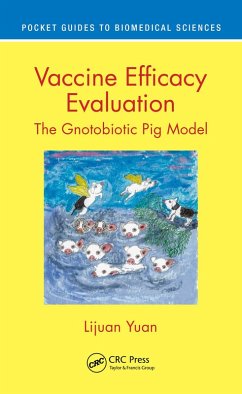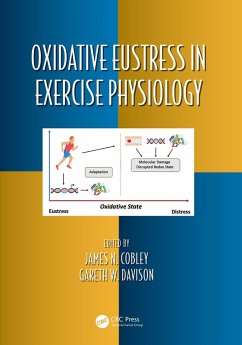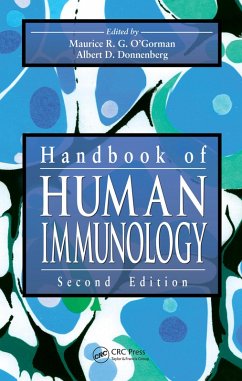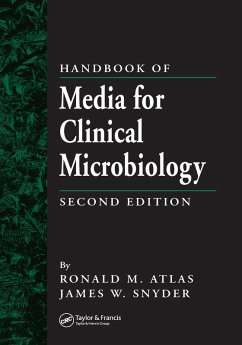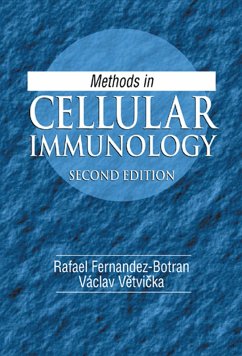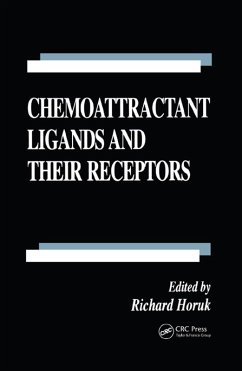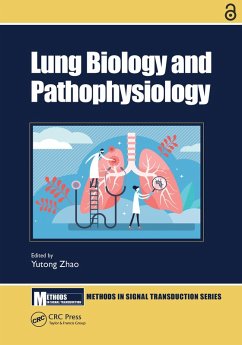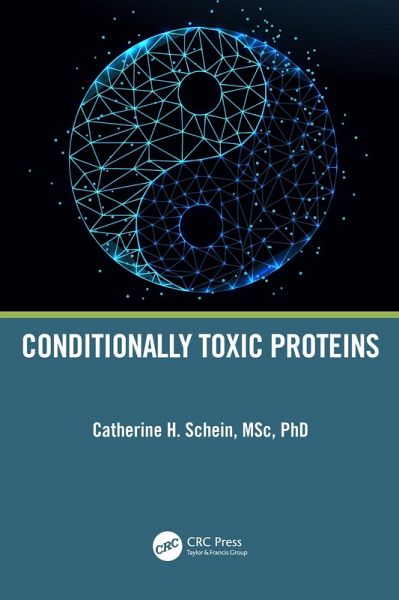
Conditionally Toxic Proteins (eBook, ePUB)
Versandkostenfrei!
Sofort per Download lieferbar
52,95 €
inkl. MwSt.
Weitere Ausgaben:

PAYBACK Punkte
26 °P sammeln!
Human health depends upon access to high-quality proteins for our diet and pharmaceutical use. This book deals with the nature of toxicity as it applies to proteins in food and drugs. Many proteins, such as glutens and allergens, are valuable food sources but toxic for sensitized individuals. Even proteins produced in the human body can become toxic through mutation or aggregation. For example, Alzheimer's and Huntington's disease are characterized by plaques in the brain of insoluble protein aggregations. Paradoxically, even toxins produced by the most pathogenic microorganisms, such as Botox...
Human health depends upon access to high-quality proteins for our diet and pharmaceutical use. This book deals with the nature of toxicity as it applies to proteins in food and drugs. Many proteins, such as glutens and allergens, are valuable food sources but toxic for sensitized individuals. Even proteins produced in the human body can become toxic through mutation or aggregation. For example, Alzheimer's and Huntington's disease are characterized by plaques in the brain of insoluble protein aggregations. Paradoxically, even toxins produced by the most pathogenic microorganisms, such as Botox, have found use in the clinic and industry. This book discusses how many proteins, including interferons and cytokines, can be valuable therapeutics, while still associated with autoimmune diseases, such as psoriasis or lupus erythematosus.
Key Features:
Related Titles
Almeida, P. Proteins: Concepts in Biochemistry (ISBN 978-0-8153-4502-2)
Williamson, M. How Proteins Work (ISBN 978-0-8153-4446-9)
Lopata, A. L., ed. Food Allergy: Molecular and Clinical Practice (ISBN 978-0-3677-8199-6)
Wegrzyn, R. D. & A. S. Rudolph, eds. Alzheimer's Disease: Targets of New Clinical Diagnostic and Therapeutic Strategies (ISBN 978-1-4398-2708-6)
Key Features:
- Shows why gluten proteins are different from all others and how this can account for symptoms throughout the body in those with celiac disease
- Illustrates that "multiple allergy syndrome" is not only real and related to similar allergens in extremely different plants
- Discusses the difficulties in using human proteins and cytokines as therapeutics
- Presents examples of how protein aggregates are vital to many physiological processes but also characterize renal and neurological syndromes
- Shows examples of protein toxins that have medical and industrial uses
Related Titles
Almeida, P. Proteins: Concepts in Biochemistry (ISBN 978-0-8153-4502-2)
Williamson, M. How Proteins Work (ISBN 978-0-8153-4446-9)
Lopata, A. L., ed. Food Allergy: Molecular and Clinical Practice (ISBN 978-0-3677-8199-6)
Wegrzyn, R. D. & A. S. Rudolph, eds. Alzheimer's Disease: Targets of New Clinical Diagnostic and Therapeutic Strategies (ISBN 978-1-4398-2708-6)
Dieser Download kann aus rechtlichen Gründen nur mit Rechnungsadresse in A, B, BG, CY, CZ, D, DK, EW, E, FIN, F, GR, HR, H, IRL, I, LT, L, LR, M, NL, PL, P, R, S, SLO, SK ausgeliefert werden.




